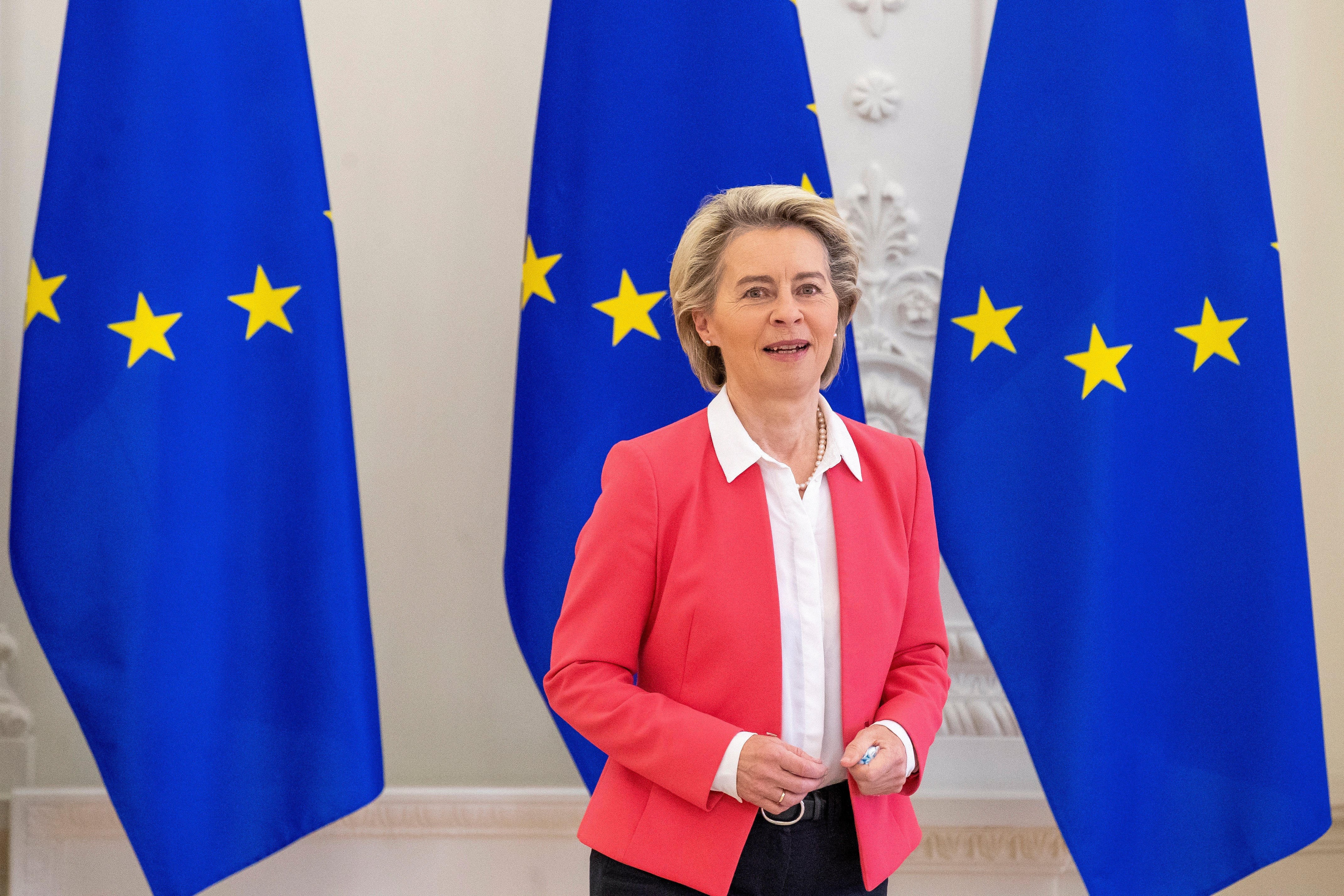The ‘new approach’ to the Northern Ireland protocol has fallen flat on its face
Brussels made it clear it was in no mood to listen to demands or comply with commands to renegotiate the deal so painstakingly stitched together in 2019, writes Andrew Woodcock


It would be fair to say that the “new approach” to the Northern Ireland protocol announced with great fanfare by Boris Johnson on Wednesday has pretty comprehensively fallen flat on its face.
Within an hour or so of the UK’s demands being stated in the House of Lords by chief negotiator David Frost and publishing in an ominously-named “command paper”, Brussels had made it clear it was in no mood to listen to demands or comply with commands to renegotiate the deal so painstakingly stitched together in 2019.
Many in Brussels took the view that the tone adopted by Mr Johnson and his Brexit minister was so belligerent – and so dismissive of the responsibility which they hold for creating the current difficulties – that the “new approach” may be deliberately designed to fail.
They feel that there was never any question of unpicking an international treaty signed by Mr Johnson so recently, whose contents were largely dictated by his views on what Brexit might entail.
European Commission president Ursula von der Leyen and her Brexit chief Maros Sefcovic said so in no uncertain terms in response to the UK initiative.
After speaking with Mr Johnson by phone, Ms von der Leyen said the EU was ready to be “creative and flexible within the protocol framework”, but added firmly: “We will not renegotiate.”
In the lingo of Brussels diplomacy, “creative and flexible” can go quite a long way, indicating there is wriggle-room to finesse procedures here and sand down rough edges there to try to alleviate the burdens which Brexit and the protocol have imposed on Northern Irish businesses and residents.
But it is far short of promising the kind of wholesale changes Mr Johnson appears to want and which – it can never be said often enough – were requested by him and represented a major concession by the EU, which has never previously allowed customs checks on its external borders to be conducted by a non-member state outside EU territory.
To judge by Johnson and Frost’s comments in recent weeks, anyone would be forgiven for thinking that the protocol was forced on them against their will.
Arrangements for the Northern Ireland border were already largely drawn up by Theresa May’s administration, they say, and they needed to finalise them quickly because they were under intense time pressure.
What they don’t mention is that Ms May’s backstop – which Mr Johnson insisted on tearing up – was designed precisely to avoid the problems of border bureaucracy and disruption to trade the PM now complains of, or that the only time pressure was created by Mr Johnson’s refusal to accept the extension to negotiations which the EU was offering him.
They complain that the EU is interpreting the agreement in a “purist” or “theological” way. But when I asked Mr Johnson’s spokesperson on Thursday whether the UK alleges any breach of Mr Johnson’s agreement by the EU, he was unable to come up with any. Instead, it appears to be a matter of the UK complaining that the EU is implementing an international agreement in the form in which it was agreed.
Of course, all of this may just be sabre-rattling. Mr Johnson has a track record of talking tough and then caving in at the last minute. And a row with Brussels has always been a good way to rally his Brexit-backing base.
But Downing Street is not ruling out ripping up the protocol if agreement is not reached by the autumn, and that could have real-world consequences, permitting the EU to impose retaliatory tariffs, which do not have to be restricted to the issues under dispute. A full-blown trade war with the UK’s nearest neighbours and biggest commercial partners would add to the economic hit the country is already taking from Brexit and put at risk the national recovery from the coronavirus pandemic.
Yours,
Andrew Woodcock
Political editor
Join our commenting forum
Join thought-provoking conversations, follow other Independent readers and see their replies
Comments